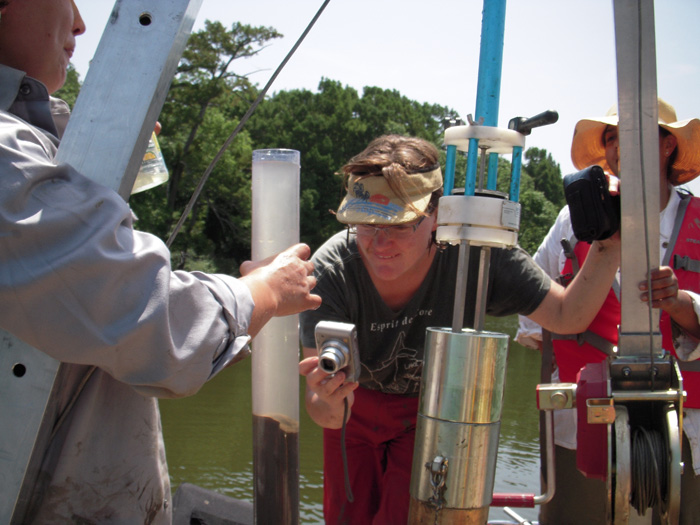
Every year, rivers flood their banks and threaten homes and farmland, filling floodplain lakes. Researchers who study the evolution of lakes are turning to lake floodplains to help explain not only how these systems have behaved in the past, but to help water systems managers work with these floodplains in the future.
The International PAGES Floodplain Lake Workshop will be held Sept. 16-19 at the University of Arkansas. The workshop will bring together key researchers who assess past and present-day changes in river conditions and flows based on sediment records obtained from floodplain lakes.
This conference will be among the first for PAGES to use lessons of the past to understand the ecological condition of rivers and their trajectory of change, said Sonja Hausmann, assistant professor of geosciences at the University of Arkansas and conference organizer.
The workshop will bring together researchers using different techniques to examine changes over time in sediments, ecology and hydrology of floodplain lake systems. They will identify the challenges that researchers face when reconstructing environmental changes from fluvial lake records and look for ways to overcome them. They also will identify the range of chemical and biological indicators being used to reconstruct historic river and wetland conditions and explore new opportunities. Researchers will present their findings on hydrologic variability, erosion, sedimentation, seasonal changes and the impact of climate and catchment change and human use on floodplains. Their research spans the globe from the Amazon to Iowa, from Cambodia to the Mississippi, from Australia and the Arctic to the White River in Arkansas.
The conference is supported in part by the Office of the Vice Provost for Research
and Dean of the Graduate School. To register online, visit the PAGES Web site.
PAGES, or Past Global Changes, is an international effort to coordinate research into past global change research, and is funded by the National Science Foundation, the Swiss National Science Foundation, the NOAA and the International Geosphere-Biosphere Programme, aprogram of the Swedish Academy of Sciences.
Topics
Contacts
Melissa Lutz Blouin, Director of Science and Research Communications
University Relations
479-575-5555,